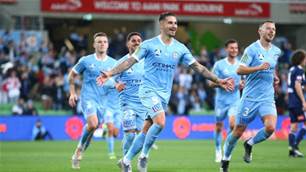THE FUTURE of the A-League salary cap will come under scrutiny as Professional Footballers Australia and FFA prepare a new Collective Bargaining Agreement (CBA) on the back of a landmark $160 million broadcast deal.
Players will continue to support a cap provided they receive a “fair and equitable share” of game revenue, receive greater contract security and a substantial improvement in player welfare programs.
The PFA has also called for the establishment of a retirement fund in what the union describes as the “most important negotiation about career paths in the history of Australian football”.
The current CBA expires at the end of April.
PFA negotiator and legal counsel Brendan Schwab said while there was goodwill on all sides support for the salary cap was not a fait accompli. The yawning gap between investment in footballer welfare and those enjoyed by players of other professional codes will also be addressed.
“We remain the only major sport in Australia that does not have a designated retirement fund,” Schwab said. “And our investment in player education and development and wellbeing is embarrassingly low in comparison with the other major sports.
“The AFL for example as spent around $20,000 per player in education and development. I’ve just been involved in the NRL negotiations – that is now well in excess of $10,000 per player. Cricket is at a similar level to the AFL and in football the investment is less than $500.
“And we just have to make sure when a player signs an A-League contract that contract is backed up and it’s worth more than the paper that it’s written on.”
While the PFA is leaning towards a rise in the cap, Schwab said player payments were not the only issues up for discussion. An actuary, experienced in AFL and cricket, had been engaged to pull together a retirement fund model which will be presented during negotiations.
He said players were currently “happy to consider the retention of the cap” but were just as determined to create a decent career path of which remuneration was only part.
Schwab added: “We really believe if we do not address in this round of bargaining the players concerns around contract security, education, development, wellbeing and retirement then those concerns may never be addressed.
“And they certainly won’t be addressed in the life of this broadcast deal and that is an unacceptable outcome for the players.”
The Federal Government’s Smith Review – endorsed by the FFA – suggested footballers were overpaid and called for a reduction or freezing of the salary cap which is set at $2.5 million per club. FFA chairman Frank Lowy has already said there will be no increase.
But the PFA says the players’ contribution to the success of the A-League, one of only two football competitions groups in the world along with the MLS to agree to a salary cap, has been “seriously undervalued” by the game’s key stakeholders.
“We don’t accept that players have been overpaid,” Schwab said. “So what that means is if there is additional revenue coming into the game then it must be shared with the players.
“The salary cap is designed to protect the economic viability of the clubs and the competition yet despite that we’ve had three clubs fold in the course of the A-League and we’ve had about $2.5 million in player payments essentially robbed because of economic problems on the part of the clubs.
“What is really required is for the game to take a different cultural approach to the way they view the players. They just cannot continue to view the players as a cost – they have to view the players as an asset base.
“It’s important to understand that the salary cap has actually been set, with the agreement of FFA, for a five year period now. Given that our revenue is less than 30 per cent of total game revenue, we think it’s impossible to suggest that player payments are responsible for the economic losses of the clubs.
“That is a matter that clearly needs to be addressed in the negotiations.”
Schwab left the PFA hotseat last year but said the surprise resignation of his successor Nick Holland - just three months into the job - had no impact on the talks.
To kick off negotiations, the PFA wants full economic disclosure from the FFA to determine an appropriate level of the cap and whether enough is being done to maximise revenue and rein in unacceptable costs.
“We’re satisfied at this point in time that FFA and the clubs are committed to try and reach a good agreement with us," said Schwab, who was retained by the PFA for the CBA deal.
“And from the players' perspective, the agreement, despite its comprehensive nature, should be relatively straightforward as a matter of principle.”
He added: “We’ve got all the teams in the right market and we achieve that growth then we should have a situation where the players are well looked after and the owners, quite rightfully, get a return on their investment.”
Related Articles

Western's Lacroix named A-League PFA November Player of the Month

A-League players reveal their biggest issues, ambitions en masse
_Cropped.jpg&h=172&w=306&c=1&s=1)












